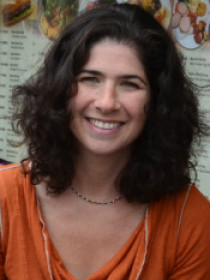Connect with Rhonda
About Rhonda
Struminger’s research agenda surrounds education and how science education specifically is communicated to non-scientists. Whether through outreach activities at field stations, serious leisure activities, or by scientists who recognize they have a responsibility to educate the public, educating the public (or not) can have an impact on government policies. Current research projects focus on education policies, informal STEM curricula, human and social capital development, and the relationship between science and democracy. Struminger has taught courses on political systems of Latin America, executive leadership, and project managing the development of geographic information systems and remote sensing. Papers in development or submitted for publication address outreach activities to the public at field stations, how education policy can help keep students in school, how leisure activities can promote science learning, and how activist scientists and their allies at the marches for science understand their role in a democratic society.
Contributions
How Field Stations Can Shape Public Perception of Science
In the News
Publications
Discusses how serious leisure activities can inform scientific mindedness.
Explores how participants at three of the U.S. marches for science perceive science in today's political climate and the role of scientists in a democratic society.
Discusses informal STEM learning, which is actively part of outreach programming at field stations across the United States, activities and helps establish the role of field stations in educating the public on science.
Uses experimental survey data of adults in Mexico City and shows that people with no or little education have higher clientelistic expectations than citizens of higher educational levels, but that their view of legislators is more subtle and more democratic than the theory of clientelism predicts.
